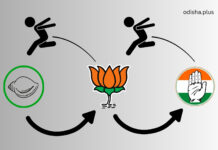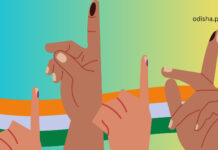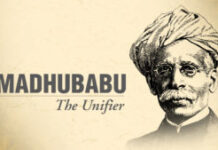Akshyata Arun
Have you ever been in a situation where you’re in the right place but speak wrong words or vice versa? Well, I have been, umpteen number of times. Here are some lessons that I have picked from my varied experiences as a student.

When I was in school, my parents, on my behalf, would write emails to the principal about how my classmates bullied me. But when I would get called to the principal’s room regarding that, I would remain silent or utter an indefinite number of “umm”s and “uh”s in front of her whereas I would weep and roar in front of my parents while narrating the bullying incidents. As a child, I could not understand the fact that she would certainly feel that my complaints were made-up stories, thereby labelling me, as well as my parents, fake complainers. In some cases, the students against whom I complained would turn the case in their favour by fabricating stories about me.
For instance, they’d confidently say that I stole their shoes or that I shut down the desktop computer allotted to them in the lab when the teacher was not looking. The truth, however, was the opposite (I even remember my father going to buy a pair of shoes for me every other day in a week as my shoes went missing in school). Other classmates and even seniors would seem shocked hearing about such incidents and suggest me, “You should first report to the class teacher rather than to the principal directly.” But I hadn’t done so since I was weak in the subject that the class teacher taught and thought that she disliked me.
Well, this was because I was a shy, timid student in front of the teachers, who felt that they belonged to a completely different level and so a student should and can never be close to them in opening up about his/her feelings (later I realized there was a thing called “partiality” among teachers, especially in favour of students they tutored). Sometimes, I would be unsure of my grammar and pronunciation and therefore decide not to speak up. Thus, I realized that I should and have to stick up for myself; since the truth won’t fall from the sky or get revealed on its own.
In the first semester of my post-graduation, I had taken part in an online seminar which was on democratic journalism and I asked, rather countered, the argument of a senior journalist, saying that the previous newspaper he had had worked with was skewed since the Managing Director did not answer my request, via email, to publish my poem. In reality, I had mixed up two separate incidents in order to save time and make my question short, thinking that he wouldn’t get my point otherwise. The first incident happened like this: I had typed the entire poem in the email and sent that to the editor, requesting him to publish the same. The second one was: I had emailed the MD of the national daily seeking for an online chat between two celebrities, whom I formerly adored.
After listening to my question, the journalist replied, “I think you have a fundamental mistake as you should have emailed the editor instead of the MD.” I remained silent as I didn’t want to complicate things more and sound too argumentative. In my mind, I was like, “Of course! I have been taught and made to practice how to write a letter to an editor in my schooldays. How can I ever forget that?”
In the following session of the same webinar, I decided to ask a better question regarding the dominance of Page3 in newspapers but the words came out differently than what I had intended to tell along with a lot of fumbling. The result? The guest laughed at me and then said my statement was not valid. So from this, I learnt that I should write down the question/doubt popping up in my mind before asking, so that I can know if it sounds correct and coherent.
In the fourth semester, I was surely privileged to get the opportunity to attend the lecture of an ex-professor of JNU while still studying in Utkal University, Vani Vihar. In the first two classes, I didn’t raise any questions as I was feeling drowsy and wanted the sessions to get over soon. But in the last session, I messed things up by saying “thank you” and then “well-answered” to the esteemed professor after she replied to my query. Everybody present, including the retired professor herself, laughed at that. Then I immediately said sorry for committing the blunder.
But that was inaudible to her. I asked the teachers present as well as my classmates if I had said something wrong. They denied and said that my question was a good one. However, I could understand they were saying so to console me. After that, I called my mother and narrated the same, to which she said, “Usually, a senior/professional person says this to a junior/amateur one.” Hearing this, I thought that that had sounded like a comment rather than a compliment. The lesson I drew from this was to not be over smart while interacting with a person for the first time.
I hope that my personal experiences would serve as a torch bearer for others, especially those who are shy and have fear of public speaking.
(Writer is a Post Graduate Student at Dept of Sociology, Utkal University Bhubaneswar. Views are Personal.)






















